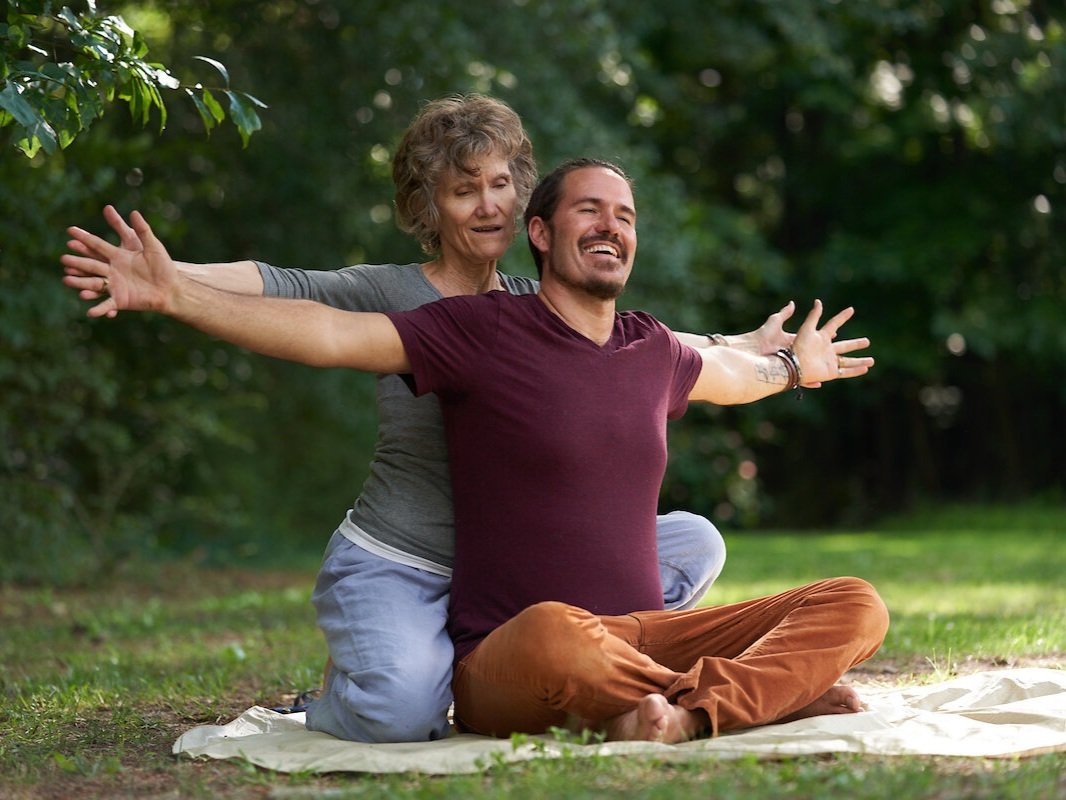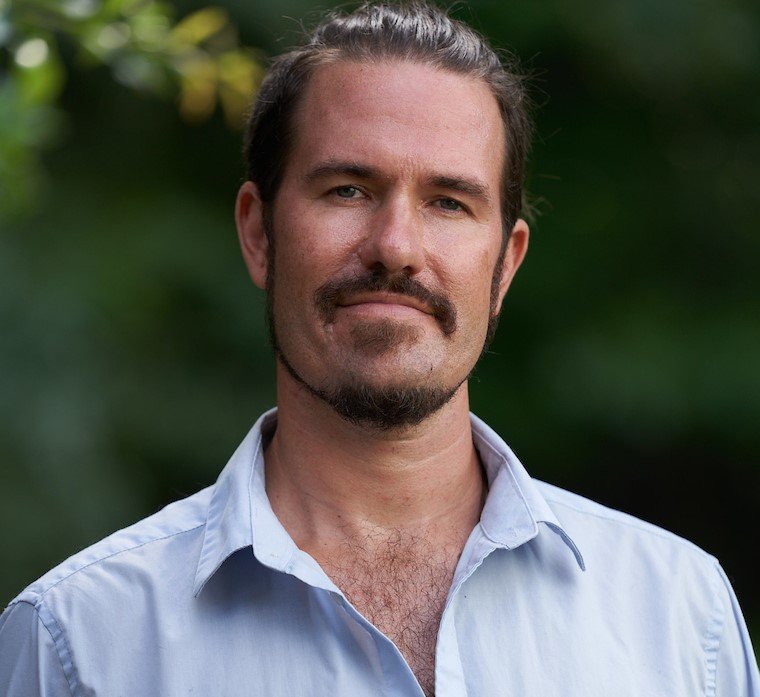
In Memory of Stephen Wagner
Written by Dee Wagner
In Memory of Stephen Wagner
In early April 2024, my son Stephen Wagner, one of the co-developers of Chi for Two died.
In the wake of his death, Stephen’s beloved wife of ten years appreciated how the Chi for Two practices for romantic partners helped them have the joyous and adventuresome life they had.
Chi for Two® — a mindful embodiment method — is a trauma healing method that works multi-generationally. The five practices for romantic partners help lovers recognize when romantic dances stir unfinished infant/parent dances, which are patterned over many generations.
In the wake of Stephen’s death, like a scientist, I dove into my research:
Chi for Two is polyvagal-informed. Knowledge of the vagus nerve recognized by scientist Stephen Porges helps me connect trauma patterning with the sluggish braking and releasing—the sluggish tension flow—that is happening in the dorsal branch of the vagus.
Trauma expert Peter Levine helps the world see trauma as inhibited movement. When we feel trapped in a potentially life/death situation, dorsal vagal tension flow becomes sluggish. Sluggish dorsal vagal tension flow inhibits movement.
My family had many movement expressions, which had become inhibited over many generations. The Story of Chi for Two begins with my dad’s first psychotic episode, which happened when I was born. We are a family of spiritual seekers and many of us have had episodes. This multi-generational inhibition of movement led some of us to become dancers and dance teachers.
I was drawn to become a dance/movement therapist because Marian Chace danced with people in psych wards. Her kinesthetic empathy helped their psychosis resolve a little.
Stephen taught tai chi. He traveled extensively (often with his wife), and studied and explored healing methods from all over the world, including communal dancing, martial arts, yoga, meditation and tea ceremony.
The other two co-developers of Chi for Two have their own multi-generational trauma healing journeys. Under my mentorship, Mary Lou Davidson, Caroline Gebhardt and Stephen helped me synthesize many healing methods. We recognized the pattern for grouping and sequencing various healing methods by noticing what unfinished infant/parent developmental dance the practice could symbolically redo.
Stephen helped me write most of the Chi for Two training documents. We speak to the harm done by gender role messaging in Why Chi for Two Now?
https://www.chifortwo.com/resources
Stephen had episodes in his early twenties that were classic for men. His episodes brought mental battles around human constructs of “good guys” and “bad guys,” resulting in a feeling that he was supposed to do something heroic. He found a psych med that helped him stay in the agreed-upon reality. When the world began to try to make some big shifts in the agreed-upon reality, he managed his thoughts by doing his spiritual questioning in the presence of his therapist or elders from his church who might validate a particular thought or suggest, “You might want to re-think that.”
Mindfulness of what happens in our bodies as we question our thoughts in the presence of an elder is built into the Chi for Two practices for clients to do with their coaches. Stephen held space for spiritual questioning with a select group of clients as a Chi for Two embodiment coach. His clients said they felt seen and understood by him in ways they had never experienced before.
On April 5, 2024, at the age of 39, Stephen shocked us all. He took actions in the wee hours—actions that had the quality of the waking-dream aspect of psychosis, which I had seen in his episodes in his twenties. His actions ended his life in a dramatic way that suggests he thought he was doing something heroic.
Stephen’s death brings a mythic grief, which we will all process a little at a time.
One biological mother can only sometimes “catch” the urge to be heroic, when it awakens in her biological son. Messages about “being the good guy” by taking heroic action to save the tribe have been in most cultures for a very long time.
I love you, Stephen. The co-developers of Chi for Two and I appreciate your contributions to our multi-generational trauma healing method, which may help boys and men like you a little at a time over many generations.


